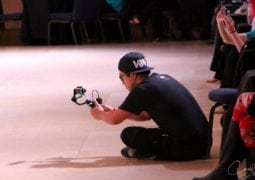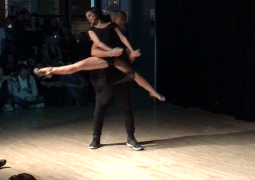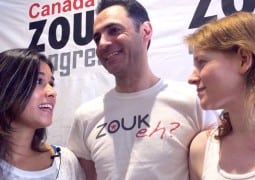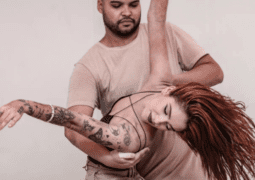The Art of Connection
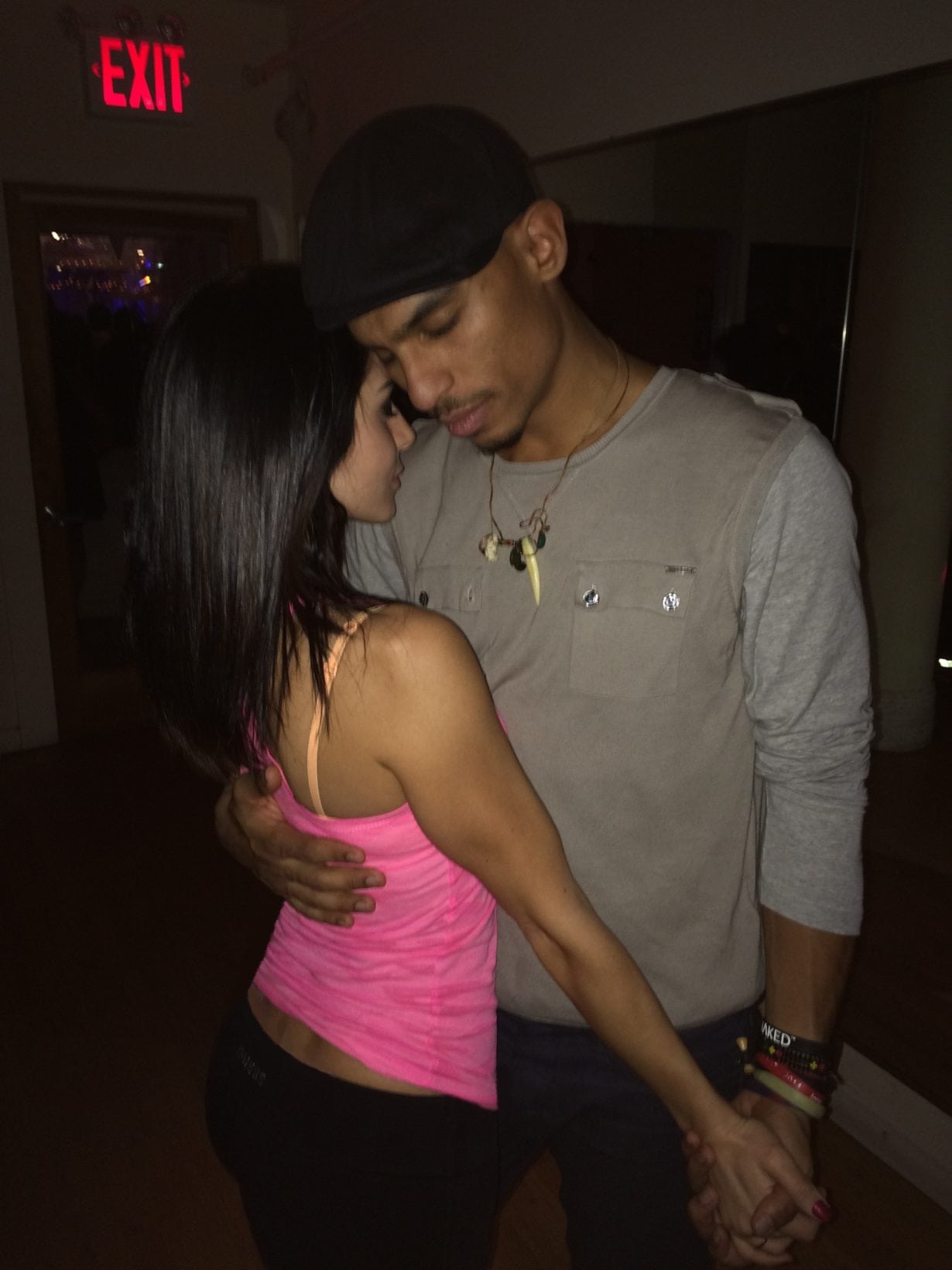
In Zouk, there is a moment at the beginning of each dance, when the song is first starting, where two people form a close hold, temple to temple, and center with few small body rolls, spot basics and weight transfers before the beat of the music kicks in. I call this the “reset moment.” I’ve always viewed this as the moment where we synchronize and use that time to align our styles of movement and create the character of the dance. I say “reset” because you are clearing yourself of the partner who you were previously dancing with (whose style may have been very different) and building a new connection.
Since Zouk can be danced to a variety of different musical genres, its versatility allows for strong connection with the music. But connecting to the song (for me) is the easy part. Zouk also requires an incredibly strong connection with your partner in a way that I have never felt with other forms of dance. There is a lot less “freestyling” with Zouk, and you may be feeling the music differently than the person with whom you are dancing. Therefore, forming the connection is essential to executing a solid dance. Connecting to my lead as they are connecting to me… and both of us to the music – there’s really nothing else like it. And as every follow (or lead) knows, the moment when you dance a song from start to finish without faltering is one of the most gratifying feelings.
I remember a very specific dance where I had a realization about connection; it was like an “ah-ha” moment in my dance journey. I was really working on trying to increase my sensitivity as a follow, but I hadn’t yet danced outside of my NYC/NJ Zouk community and often wondered if I was only following because I knew the combinations. But I didn’t feel ready to travel to congresses and dance with new people – I’d surely embarrass myself. So I was at a local Latin social and across the room I saw an unfamiliar face watching everyone dance. Something told me that he was a Zouk dancer but I hadn’t seen him dance yet so I wasn’t sure. A friend of mine who I typically dance very well with invited me to the floor and we had a great dance. As I was walking off the floor I felt a hand touch mine – I looked back and it was the stranger I saw observing. While holding my hand he looked at me as if to say “will you dance with me” (without actually asking) and so I obliged. We leaned in and connected in closed position; the “reset moment.” I could tell during this “synchronization” that his style was more Rio. I had never danced with him before and was afraid I wouldn’t recognize his moves or know how to execute them… so I tried to connect even more; to LISTEN harder than usual and be extra sensitive to his signals. I even closed my eyes in hopes to drown out everything except for the subtly of his lead. Then the music kicked in. The music, the movement, our breaths, his lead, my follow – I tuned out the world happening around us and completely submerged myself into those three minutes. I may have even forgotten to breathe at times, I’m sure. We danced together and it felt seamless. I was shocked. I just danced almost perfectly with someone whom I had never met. After the dance ended I asked him his name and where he was from. It became clear he didn’t speak very much English, but he did say “Brazil.” It was so cool to me that we could barely communicate using language, but we had nearly perfect communication during the dance. It was in that moment I realized it wasn’t about knowing the “moves” per say, but that true ability to follow really comes from listening to your partner; connecting fully.
After that one small (yet significant) experience I began to understand that dance is like a language – we connect through speaking, but also through dancing. And like all languages, there are words and there are phrases. When starting out, you may not know all the words, but you can get your point across if both people are listening and paying extra attention to the exchange. You start with a few phrases are able to build your vocabulary and comfort level from there. Being aware if this, I no longer feel intimidated when approached by an unfamiliar lead, but rather relish the opportunity to increase my dance vocabulary. Each and every dance is a welcomed challenge to tap into my sensitivity as a follow and surrender to the connection.
Tags connectionzouk
About: Danielle Marie
- Previous The Magic of Zouk at the New Zealand Salsa Congress
- Next Mirror, Mirror, On the Wall – The Value of Reflection to Improve Your Dance
You may also like...
Sorry - Comments are closed


